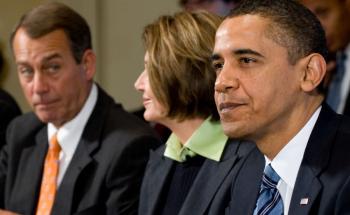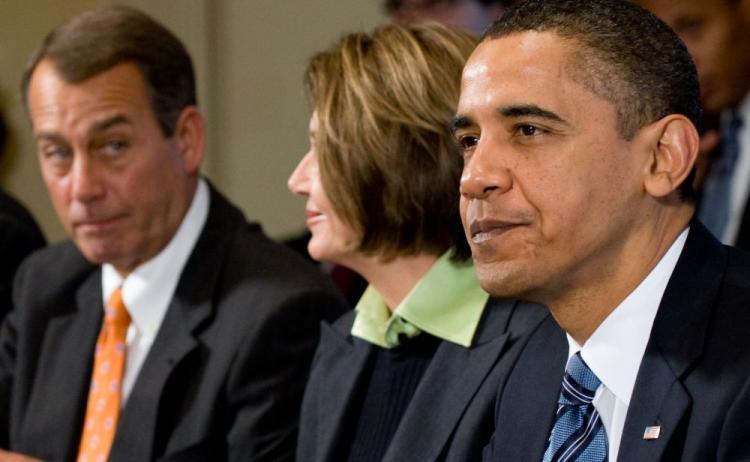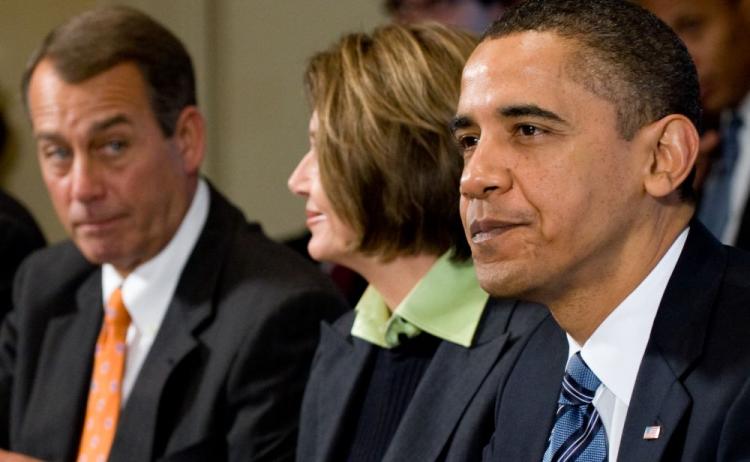Congress Tables Health Care Reform to Pass Budget
The Senate temporarily suspended debate on health care reform, voting instead to address 2010 budget bill.

Senate Minority Leader Senator John Boehner (L) of Ohio sits with President Obama and Speaker of the House Nancy Pelosi during a meeting with members of Congress in the Cabinet Room of the White House Dec. 9. On the same day, Boehner criticized Democrats Saul Loeb/AFP/Getty
|Updated:





